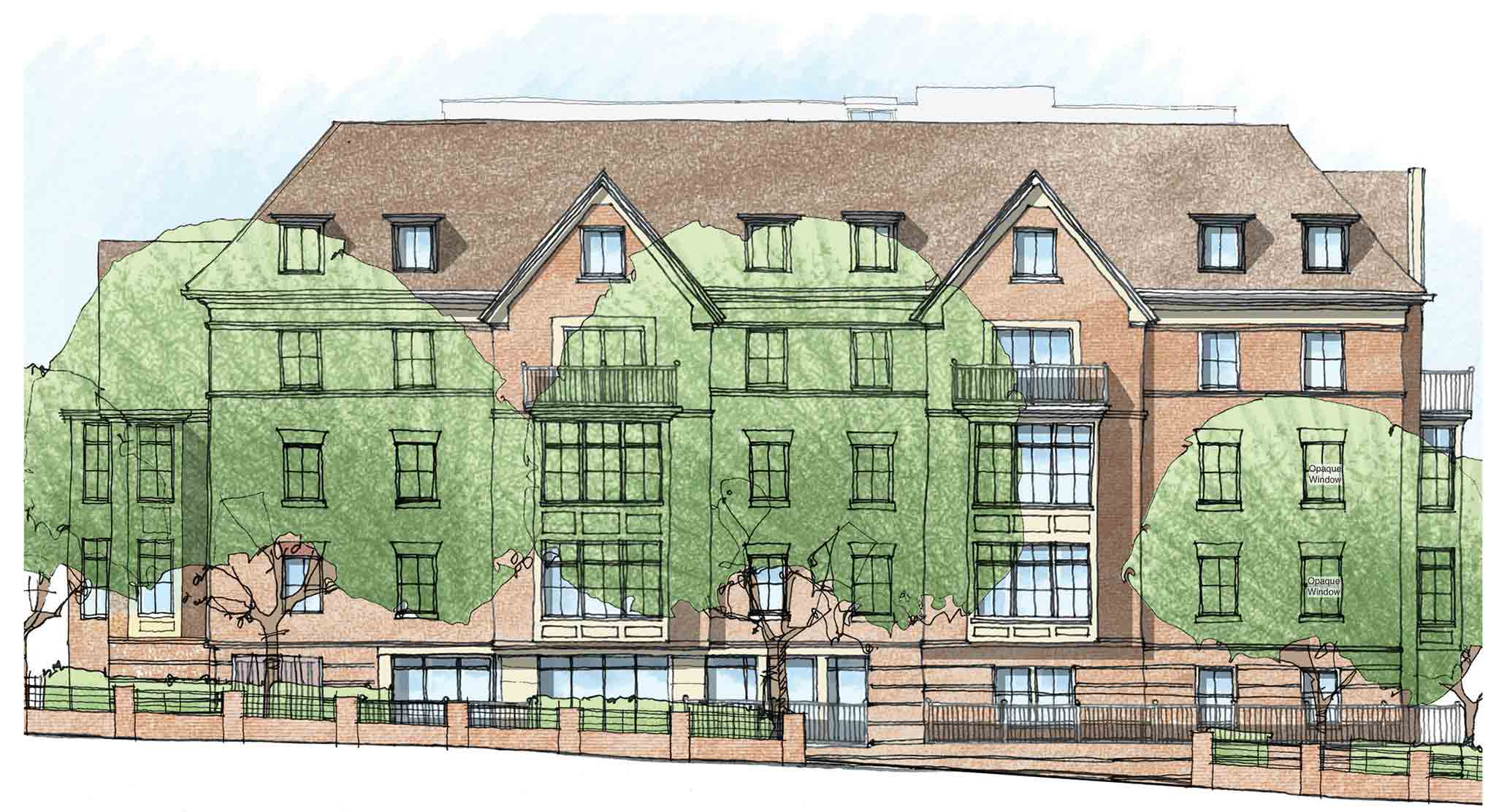OPPONENTS of the £7million Premier Inn hotel to be built on London Road lost their fight last week when planning permission was granted. They claimed the development would be ‘overscaled, overdominant, and grossly under-parked’.
There was also a warning it could push other local hotels and businesses ‘below sustainable levels’. The 110-bed budget hotel was given the green light at the end of a heated debate at the Town Hall, where members of the public were invited to speak.
Those calling for the committee to reject the Planning Officer’s recommendation to give approval focused arguments on three areas: Parking, the economic downsides, and the sheer bulk of the building and its impact on neighbouring properties.
Ellen Kent is a resident of Richmond Terrace, and her property overlooks the former courthouse where the hotel is to be built. She said the proposed building was ‘simply too big’ and took up almost the entire footprint of the site, unlike the current building.
“This development will, without question, be over-scaled, over-dominant, and grossly under-parked”
Mrs Kent pointed out the council’s own Conservation Officer had described the five-storey development as ‘intrusive’ and ‘bland’, and had voiced concerns over its ‘resultant bulkiness’. “This development will, without question, be over-scaled, over-dominant, and grossly under-parked,” she said, before ending with a plea to committee members not to approve the scheme ‘merely for fear of an appeal’.
Dr Alastair Tod, representing the Civic Society, which opposed the development, said there ‘really is so much wrong with this scheme’. He pointed out that council policy when assessing proposed developments was to do so within the context of a master plan for the area as a whole, and alluded to an Act of Parliament making this a requirement.
But he said council documents related to the proposal state ‘there is no indication a master plan will come forward in the future’. “Why ever not if this is what your policy requires?” he questioned, adding: “It is not an answer to say this scheme will not prejudice future development. How can anyone know that?”
Neighbour Alan Godwin, of Clarence Lodge, focused on parking as the proposal will see the number of spaces on site fall from 77 to 20. He said the council’s own Transport Manager has acknowledged the ‘substantial shortfall’ in parking spaces, adding: “I am perplexed as to why the report says that increased parking pressures shouldn’t matter in this decision when parking and the sheer weight of traffic is at a critical level.”
Mr Godwin asked for the project to be scaled back to 85 rooms, which would reduce the height by one floor and not necessitate a side-extension. His argument on parking was met with some sympathy by several committee members, notably Cllrs Joy Podbury, David Reilly and Godfrey Bland.
However, committee member Cllr Lawrence Heasman rejected the idea there was not enough parking and said his own research showed that at nearby Torrington Car Park there were 224 empty spaces by 6pm each evening.
Commons resident Robert Hogben questioned the economic validity of the scheme, stating that existing hotels were ‘extremely anxious’ over the plans.
He said a study by Tunbridge Wells Hotel Managers found average occupancy in the town was only 70 per cent and that 110 extra rooms would push occupancy in many establishments ‘below sustainable levels’. “We are calling for this council to support existing hotel businesses and their suppliers,” he warned. “Many smaller establishments use local food and drink suppliers and these businesses will be affected by potential closures too.”
His arguments were countered by Cllr Jane March, speaking as a member of the public, who said the council’s Hotel Needs Study identified ‘a lack of choice and star rating’ in the area, which was dominated by four-star accommodation.
She said an additional 40 jobs will be generated and the hotel will help boost local tourism, which in 2015 was worth £251 million. Her arguments were cited by committee member Bob Backhouse as to why he would vote for the proposal.
Steve Davies, representing the Whitbread-owned hotel chain, said it was a ‘major project for the town’: “There are three goals; the enhancement of the site, the provision of good quality accommodation and the generation of significant income for Tunbridge Wells.”
He said the extra spend in the town arising from the project would be between £1.7million and £2million per year. Traffic resulting from the hotel would mainly be during off-peak times, early morning and late evening, and would not add to rush hour traffic or key parking times.
Alan Legg, the Council’s Urban Design Officer and non-voting panel member, also voiced approval of the scheme as being in keeping with its surroundings.
The proposal was passed by nine votes to four with one abstention. Premier Inn declined a request for comment.
Reasons given by planning officers for recommendation:
- The existing building, the former county court house, is not considered to make a positive contribution to the conservation area and its redevelopment will help resolve this.
- The scale is considered ‘acceptable in scale and form’ and would not be harmful to the amenities of ‘nearby dwellings and other properties’.
- Additional traffic can be accommodated ‘without detriment to highway safety’ and the building is well served by public transport.
- £30,000 will be paid in developer contributions towards the implementation of an A26 cycle strategy.








